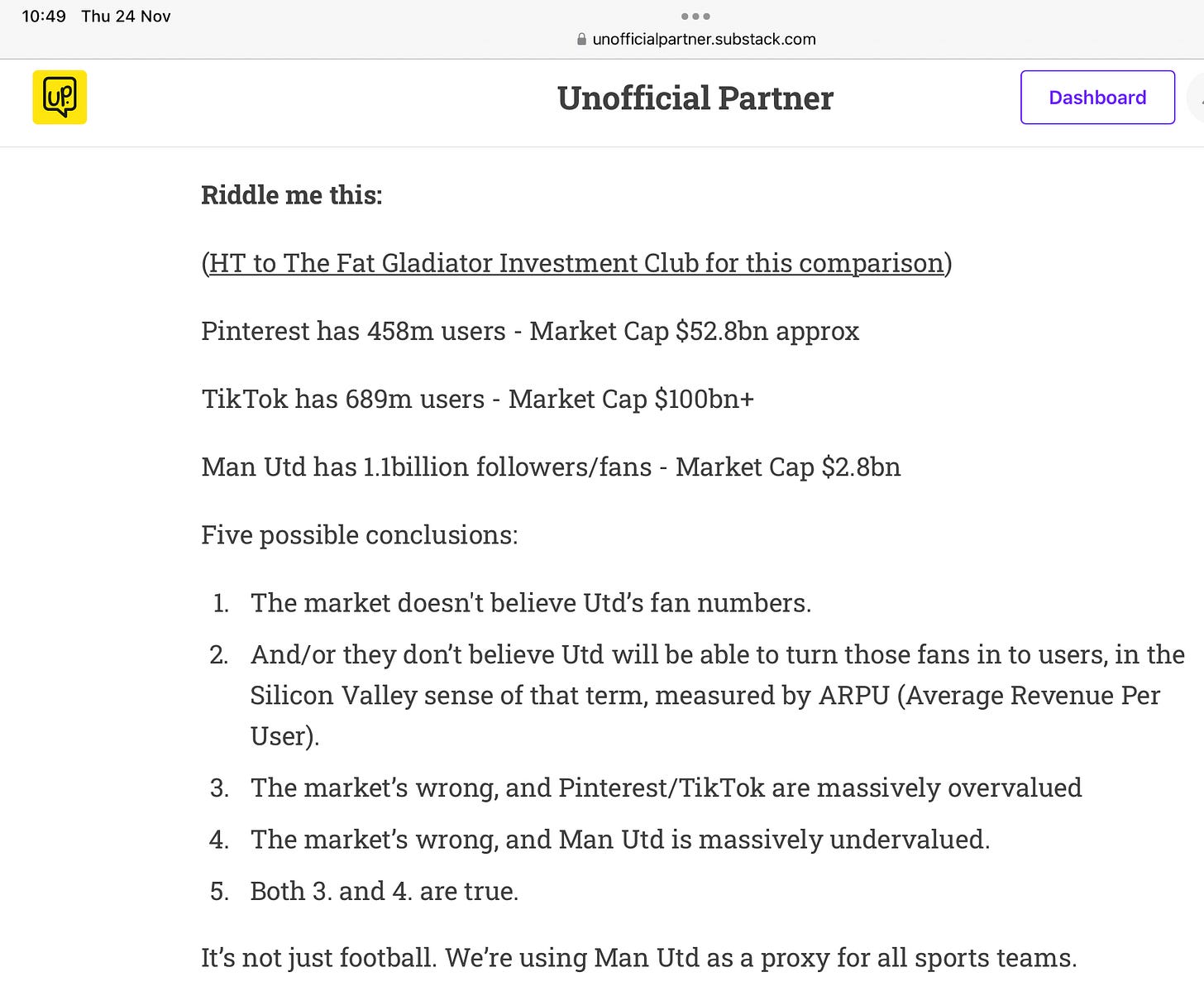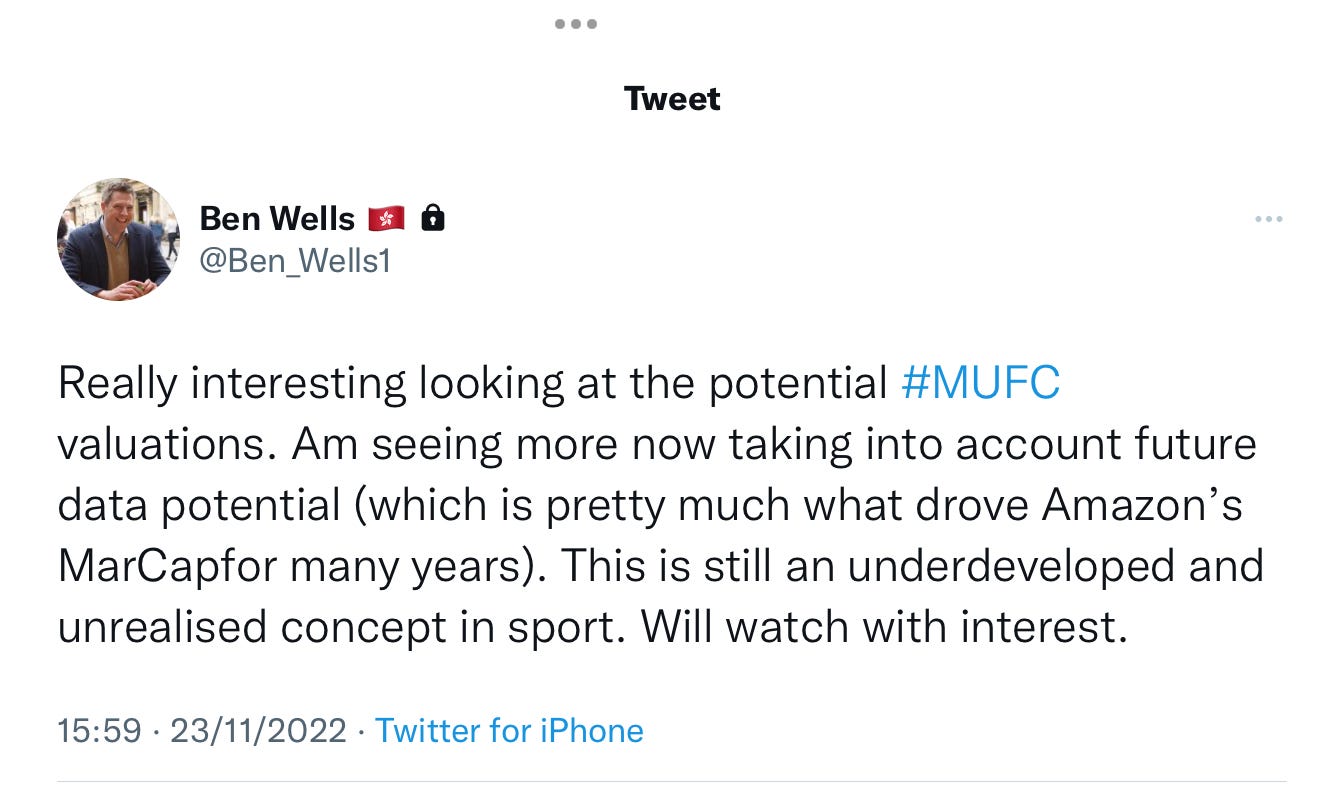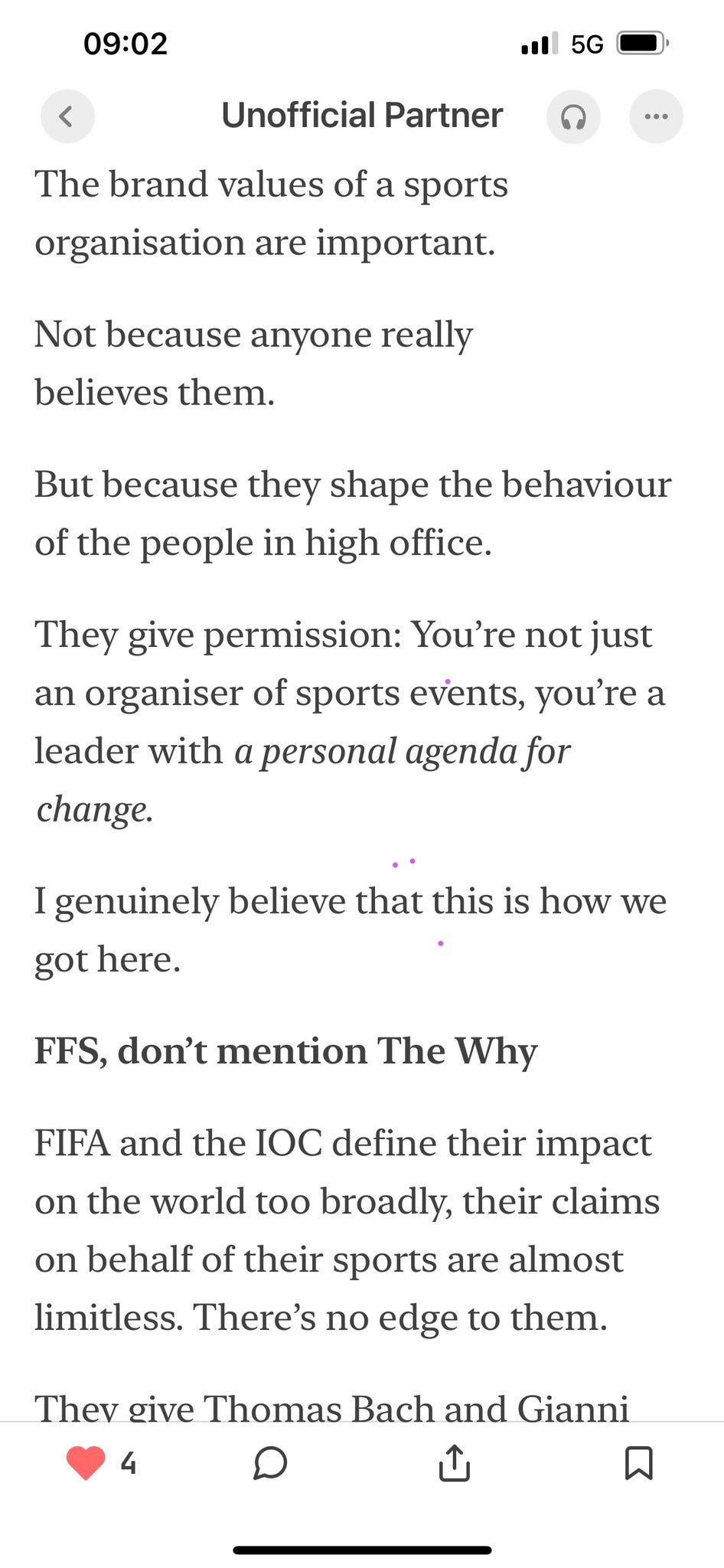Convergence: Tribalism, Big Eventers and Betting; The C Word; The origins of THAT speech; Valuing Man Utd; Sport and happiness; John Lewis v John Major; Personal Bests; Oat milk as metaphor
Overthinking the sports business, for money
‘A choice between oat milks’: What is sport without tribalism?
Nicking this line from Mic Wright’s analysis of Keir Starmer’s recent interview in The Times:
Without some element of tribalism, a passionate belief that your side has answers that your opponents do not, what is politics? An exercise in branding; a choice between oat milks, a question of marketing and delivery rather than belief.
Sport without tribalism is exactly that: ‘an exercise in branding’.
Building team followings is the hardest job.
Most fail - see LIV Golf for details.
The rise of The Big Eventer is in some ways an acceptance of that failure; attendance stripped of tribalism.
Build: Betting replaces tribalism.
Sometimes things are obvious.
This week’s podcast with Sam Sadi of LiveScore was an unapologetically clear headed analysis of the C Word: the convergence of sports media and betting.
This sees gambling not as part of the business model, but rather, THE business model.
Convergence solves two separate macro problems in two multi billion dollar industries:
The decline of the classic bundle.
The subscription model is breaking before our eyes (numbers via Carlo De Marchis).
Per a tally from Leichtman Research Group on Nov. 14, the largest pay-TV providers in the U.S. saw a loss of 785,000 net video subscribers in 3Q 2022, compared to a loss of 650,000 in 3Q 2021. Comcast suffered the biggest drop in pay TV subscribers with 560,000, as Charter (-204,000), DirecTV (-400,000) and Dish (-184,000) all saw declines as well."
Oversupply in the betting market and undifferentiated sports book product.
At the retail end, the cost of building a differentiated betting brand is enormous.
Sam Sadi: If you were to launch a new sports book brand into the UK market today, it would take you maybe 10 years to get 1% to 2% market share and you would've spent like £200, £300 million in marketing. And I'm not sure if you would succeed. This is assuming that you've built a world class sports book and we see many examples of, you know, you know, large companies coming in and only gaining one to 2% market share after many years of investment. So to succeed now in today's online gambling industry, you need a different business model.
So, convergence.
Which gets to questions of plumbing.
Is it quicker, easier or cheaper to build a sports book within a media property or, build a sports media retail front on top of a betting shop?
Convergence means seamless integration of betting in to the viewing experience. How easy is this to achieve, in reality?
The revenue flow from sports and betting events suggests the majority of betting is narrative-based, and in large part driven by the player feeling they have superior knowledge of their team than the house.
So, can exposure to data storytelling turn me (UP as Everyman) in to a punter?
What proportion of people move from playing Fantasy Premier League to laying bets?
Has gaming’s play to earn philosophy educated children to bet on sport?
See also: Kornilov and Galstyan on convergence
Hear here: A Gambling Addict’s View of the Sports Business
Valuing Man Utd
Take the above conversation down a notch and you get to team valuations.
If convergence is the present/future model, how does it impact the price of Liverpool and Man U, both of which are on the market.
How will the money market frame a football club today, and in the future?
See a previous UP Newsletter on this question: All The Pieces Matter
The numbers are out of date, but the principle remains intact.
Recent podcast guest Ben Wells makes a similar point:
See also: 777 Partners just bought Hertha Berlin.
This is Lens Balans of 777 on why they bought British Basketball.
Say what you see
An invitation to project sports business conclusions on to interesting-looking graphs
Sport and repression (from The Economist)
Small things big impact
The noise goes to tax and spend macro trends.
This in the FT was an antidote: Policy doesn’t need to shout to have enduring long term value.
Ambush? Check
See also,


The Big Idea, pt2: ‘Timid, downbeat and sad’
Can brands have a social conscience AND be entertaining?
John Lewis’ Christmas ad suggests not.
Emerging theory: Christmas = Sport.
Should it be…happier, more hopeful, particularly in gloomy times?
Sports marketing’s purpose agenda is nuanced. Sport is where many people go to escape real life, not be lectured about it.
For a right ol’ belly laugh, go see the Cannes Lions for Sport short list…
See also:
Linked: This is what happens when there’s no edge to sport’s overclaim culture
The FIFA president’s speech, that speech, was borne of defining football as the solution to all ills.
Btw, UP was right about Infantino, discuss: (See previous, Value Creeps)
Personal Best
Sports biz people list their favourite things
This week: Katie Baldwin, MatchFit











